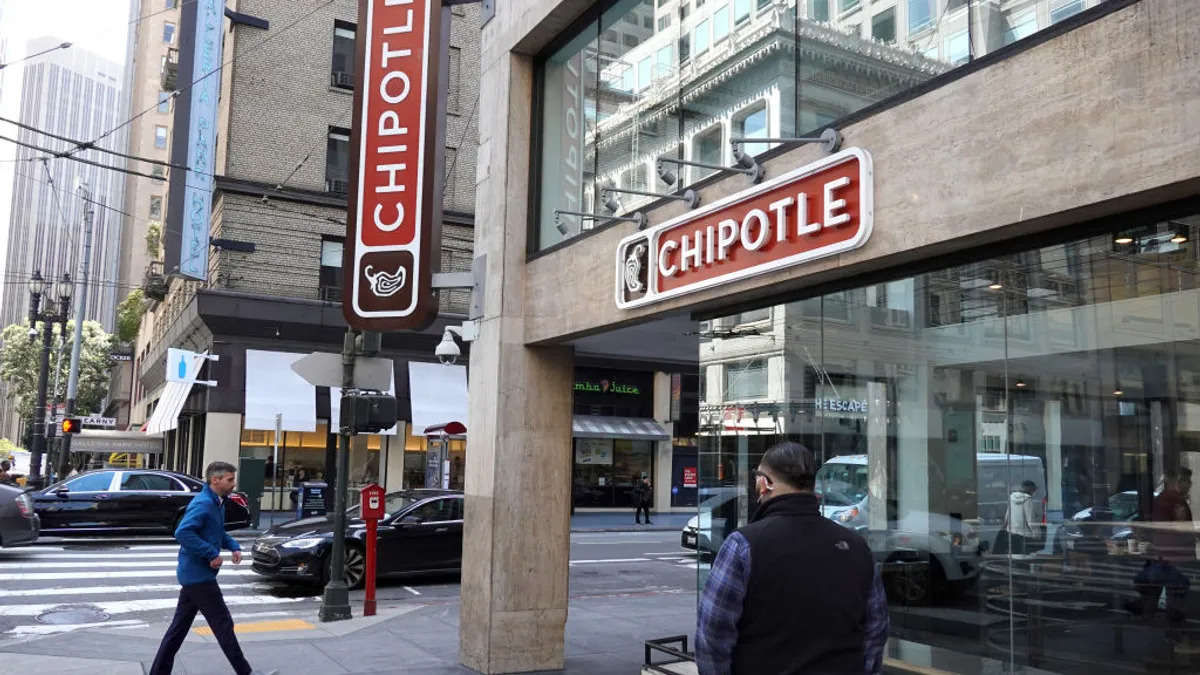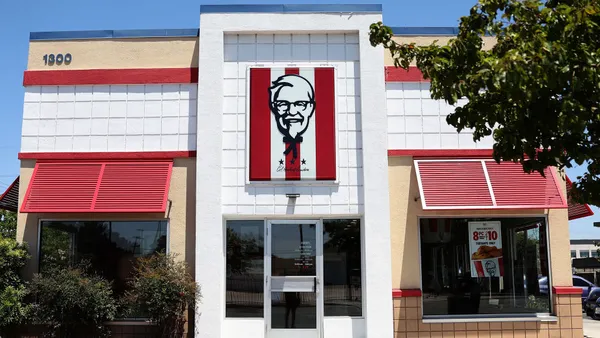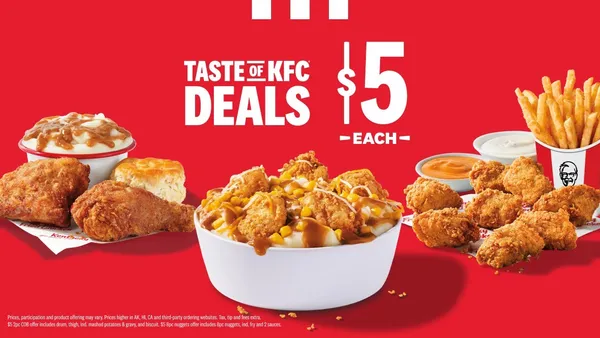Dive Brief:
- The International Foodservice Manufacturers Association predicts the total restaurant segment will grow 0.5% compared to 0.8% last year in terms of operator purchases in dollars, the organization said in a Tuesday press release. The growth is sparked by ongoing demand from higher income consumers to dine out.
- Quick service restaurants are expected to grow 0.7% while fast casual will be up 1.3%, an upward revision of the organization’s 0.9% growth projection for fast casuals issued in February.
- The IFMA slashed its inflation projection for 2024 from its February prediction of 5% to 3.8%.
Dive Insight:
IFMA acknowledged that one of the biggest challenges facing restaurants is a recent slowing in consumer traffic. Low-income households continue to limit their food service spending, which has led many quick-service restaurants to provide value-oriented platforms, like McDonald’s and Burger King’s $5 meal deals.
However, early results from McDonald’s value platform have yet to show a measurable impact on same-store sales despite the mild boosts in traffic. Last quarter, McDonald’s U.S. business’ same-store sales fell by 0.7% — the first decline it reported in the key metric since 2020.
Despite the push for more affordability, fast casual, which tends not to lean into value as much, is still going to outpace QSRs, as seen last year. Chains like Wingstop and Chipotle continue to outperform the overall industry in terms of same-store sales. Wingstop posted nearly a 30% year-over-year increase in same-store sales during the second quarter.
Midscale chains are expected to drop 0.7% while casual dining will experience flat growth as consumers trade down to lower cost occasions, the organization predicted. Traffic has declined across the casual dining segment with BJ’s, Denny’s and Outback among the chains posting negative same-store sales for Q2.
The bright spots in the restaurant industry are onsite segments, including college and universities, and lodging, which are expected to grow business by 2% and 2.8%, respectively. The IFMA said these growth rates are largely higher because the sectors had a slower pace of recovery from 2020. However, these non-traditional locations have piqued interest from various chains like Focus Brands, and A&W, which have been opening sites at colleges and universities. TGI Fridays is planning to open more restaurants inside hotels.
IFMA worked with Datassential, a foodservice research firm, to create its forecast models. The models were also reviewed by operators from five IFMA Foodservice Leadership Councils.














